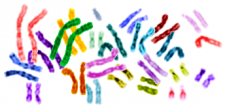Gene Editing: The Dual-use Conundrum
By Janet Phelan,
New Eastern Outlook
| 07. 11. 2016
Dual-use may be best understood by considering the functions of a knife. Used against an enemy, a knife can be deadly. In the hands of a skilled surgeon, a knife may be life-saving, removing a gangrenous appendage or excising a cancerous mass.
Wikipedia defines dual-use this way: “In politics and diplomacy, dual-use is technology that can be used for both peaceful and military aims. More generally speaking, dual-use can also refer to any technology which can satisfy more than one goal at any given time.”
Behind the debate over the Iran nuclear deal lurked the dual-use issue. On the one hand, there were those claiming that Iran had every right to develop nuclear power in pursuit of peaceful aims. In the other camp were those who maintained that possession of nuclear technology was a path towards developing nuclear weapons, and in the hands of a regime hostile to America’s purported friend and ally, Israel, was too dangerous to be allowed to manifest. Dual-use has implications reaching beyond nuclear science. Those watching the development of what is termed “biodefense” are uncomfortably...
Related Articles
By Mike McIntire, The New York Times | 01.24.2026
Genetic researchers were seeking children for an ambitious, federally funded project to track brain development — a study that they told families could yield invaluable discoveries about DNA’s impact on behavior and disease.
They also promised that the children’s sensitive...
By Arthur Lazarus, MedPage Today | 01.23.2026
A growing body of contemporary research and reporting exposes how old ideas can find new life when repurposed within modern systems of medicine, technology, and public policy. Over the last decade, several trends have converged:
- The rise of polygenic scoring...
By Danny Finley, Bill of Health | 01.08.2026
The United States Food and Drug Administration (FDA) has a unique funding structure among federal scientific and health agencies. The industries it regulates fund nearly half of its budget. The agency charges companies a user fee for each application
...
By George Janes, BioNews | 01.12.2026
A heart attack patient has become the first person to be treated in a clinical trial of an experimental gene therapy, which aims to strengthen blood vessels after coronary bypass surgery.
Coronary artery bypass surgery is performed to treat...




